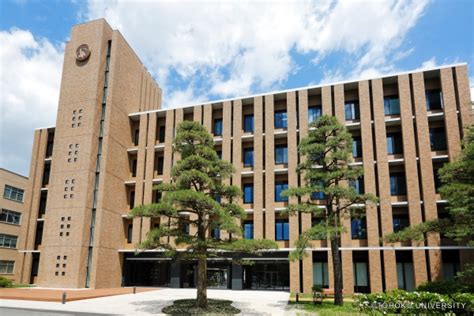In today’s globalized world, mastering a foreign language has become an invaluable asset. Japanese, with its rich history and growing economic significance, has emerged as a highly sought-after language in the academic and professional realms. This article presents a comprehensive guide to colleges and universities that offer Japanese programs, providing aspiring learners with a roadmap to pursue their language proficiency goals.

Undergraduate Programs
University of California, Berkeley
- Japanese Studies Major: Offers a comprehensive curriculum covering Japanese language, literature, history, culture, and society.
- Japanese Language and Culture Minor: Provides foundational knowledge in Japanese language and culture, ideal for students seeking a complementary specialization.
Columbia University
- East Asian Languages and Cultures Major (Japanese Track): Focuses on developing students’ Japanese language skills and cultural understanding.
- Japanese Studies Concentration: Allows students to tailor their studies to specific interests, such as Japanese literature, history, or film.
Harvard University
- East Asian Languages and Civilizations Concentration (Japanese): Offers a rigorous program that emphasizes language proficiency, cultural immersion, and research opportunities.
- Minor in Japanese Language: Provides students with a solid foundation in Japanese language and culture.
Graduate Programs
Yale University
- Master of Arts (M.A.) in Japanese Language and Literature: Prepares students for advanced study, research, or professional careers in Japanese.
- Certificate in Japanese Studies: Provides intensive language training and cultural immersion for students with limited or no prior knowledge of Japanese.
New York University
- Master of Arts (M.A.) in Japanese Cinema: Focuses on the history, theory, and practice of Japanese cinema.
- Doctor of Philosophy (Ph.D.) in Japanese Language and Literature: Offers a doctoral-level program for advanced research in Japanese language, literature, and culture.
University of Michigan, Ann Arbor
- Master of Arts (M.A.) in Japanese Studies: Provides a multidisciplinary approach to Japanese language, culture, and society.
- Specialization in Japanese Business and Language: Prepares students for careers in international business or organizations with operations in Japan.
Key Considerations
When selecting a college with a Japanese program, it is essential to consider the following factors:
- Language Proficiency Level: Determine the institution’s requirements for language proficiency and choose a program that aligns with your current level.
- Curriculum and Coursework: Review the course offerings and syllabi to ensure that the program covers the topics that interest you.
- Faculty and Resources: Assess the qualifications of the faculty and the availability of resources such as language labs, tutoring, and study abroad opportunities.
- Career Opportunities: Consider the potential career paths related to Japanese language and culture, and research the alumni outcomes of the program.
Tips and Tricks
- Immerse yourself in the language: Supplement your classroom learning with language exchange groups, online resources, and media consumption.
- Connect with Japanese speakers: Engage with native speakers through conversation circles, cultural events, or online platforms.
- Set realistic goals: Start with attainable language proficiency targets and gradually increase your challenges.
- Don’t be afraid to make mistakes: Embrace mistakes as learning opportunities and seek feedback from instructors and peers.
Common Mistakes to Avoid
- Underestimating the difficulty: Japanese is a complex language that requires consistent effort and practice.
- Neglecting cultural context: Learning the language in isolation can hinder your comprehension of Japanese culture and society.
- Relying solely on textbooks: While textbooks are valuable, they cannot fully replace interactive learning and language immersion.
- Avoiding speaking practice: Speaking is essential for developing fluency. Don’t be afraid to participate in class discussions or seek out opportunities to practice with native speakers.
Frequently Asked Questions
1. Which colleges offer the most comprehensive Japanese programs?
- University of California, Berkeley
- Columbia University
- Harvard University
2. What is the typical curriculum of an undergraduate Japanese major?
- Japanese language courses (all levels)
- Japanese literature, history, and culture courses
- Electives related to Japan (e.g., art, economics, sociology)
3. What are the career prospects for graduates with a Japanese language degree?
- International business
- Translation and interpretation
- Teaching
- Government and non-profit organizations
- Tourism and hospitality
4. Can I study Japanese abroad through my college program?
- Most colleges offer study abroad programs in Japan, ranging from summer intensives to full-year exchanges.
5. How long does it take to become fluent in Japanese?
- Fluency depends on individual factors, but the Foreign Service Institute (FSI) estimates that it takes approximately 88 weeks (2,200 hours) of study for native English speakers to achieve professional working proficiency.
6. What is the best way to practice Japanese outside of class?
- Immerse yourself in Japanese media (e.g., movies, music, television)
- Find a language exchange partner or tutor
- Join a Japanese conversation group or cultural club
7. What is the role of Japanese in the modern world?
- Japan is the world’s third largest economy and a major player in international affairs.
- Japanese language and culture have a rich historical legacy and continue to influence global culture.
- Proficiency in Japanese opens doors to business opportunities, travel, and cultural exchange.
8. What is the difference between Japanese and other East Asian languages?
- Japanese is a unique language isolate, with no known relation to other languages in the world.
- However, it shares some similarities with Korean and Chinese due to historical and cultural exchange.
